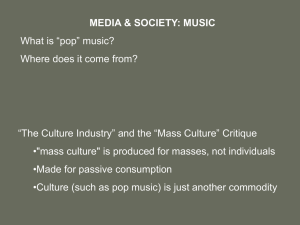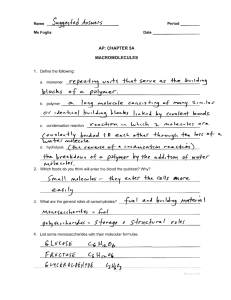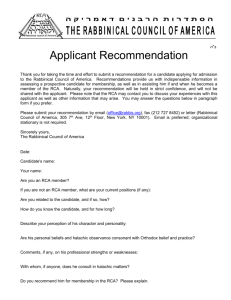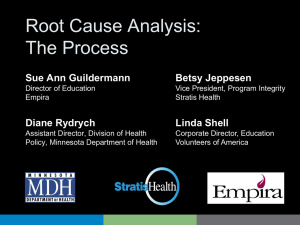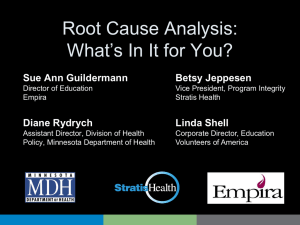Improving the Capacity of Healthcare
advertisement
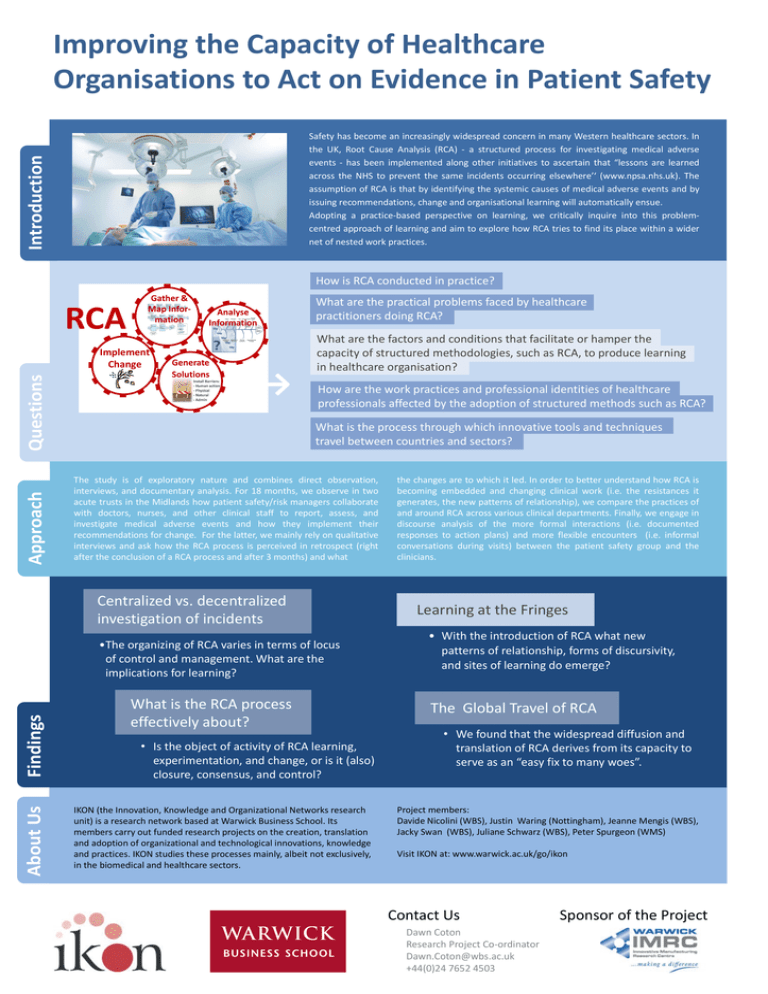
Improving the Capacity of Healthcare Organisations to Act on Evidence in Patient Safety Introduction Safety has become an increasingly widespread concern in many Western healthcare sectors. In the UK, Root Cause Analysis (RCA) - a structured process for investigating medical adverse events - has been implemented along other initiatives to ascertain that “lessons are learned across the NHS to prevent the same incidents occurring elsewhere’‘ (www.npsa.nhs.uk). The assumption of RCA is that by identifying the systemic causes of medical adverse events and by issuing recommendations, change and organisational learning will automatically ensue. Adopting a practice-based perspective on learning, we critically inquire into this problemcentred approach of learning and aim to explore how RCA tries to find its place within a wider net of nested work practices. How is RCA conducted in practice? What are the practical problems faced by healthcare practitioners doing RCA? RCA Approach Questions Implement Change ↔ What are the factors and conditions that facilitate or hamper the capacity of structured methodologies, such as RCA, to produce learning in healthcare organisation? How are the work practices and professional identities of healthcare professionals affected by the adoption of structured methods such as RCA? What is the process through which innovative tools and techniques travel between countries and sectors? The study is of exploratory nature and combines direct observation, interviews, and documentary analysis. For 18 months, we observe in two acute trusts in the Midlands how patient safety/risk managers collaborate with doctors, nurses, and other clinical staff to report, assess, and investigate medical adverse events and how they implement their recommendations for change. For the latter, we mainly rely on qualitative interviews and ask how the RCA process is perceived in retrospect (right after the conclusion of a RCA process and after 3 months) and what Centralized vs. decentralized investigation of incidents About Us Findings •The organizing of RCA varies in terms of locus of control and management. What are the implications for learning? Global Travel of RCA Centralised vs. decentralised investigation of incidents What theRCA RCA process Understanding whatis is the process effectively about Learning at the fringes effectively about? Allocation of Risk, Responsibility, Authority • Is the object of activity of RCA learning, experimentation, and change, or is it (also) closure, consensus, and control? IKON (the Innovation, Knowledge and Organizational Networks research unit) is a research network based at Warwick Business School. Its members carry out funded research projects on the creation, translation and adoption of organizational and technological innovations, knowledge and practices. IKON studies these processes mainly, albeit not exclusively, in the biomedical and healthcare sectors. the changes are to which it led. In order to better understand how RCA is becoming embedded and changing clinical work (i.e. the resistances it generates, the new patterns of relationship), we compare the practices of and around RCA across various clinical departments. Finally, we engage in discourse analysis of the more formal interactions (i.e. documented responses to action plans) and more flexible encounters (i.e. informal conversations during visits) between the patient safety group and the clinicians. Learning at the Fringes • With the introduction of RCA what new patterns of relationship, forms of discursivity, and sites of learning do emerge? The Global Travel of RCA • We found that the widespread diffusion and translation of RCA derives from its capacity to serve as an “easy fix to many woes”. Project members: Davide Nicolini (WBS), Justin Waring (Nottingham), Jeanne Mengis (WBS), Jacky Swan (WBS), Juliane Schwarz (WBS), Peter Spurgeon (WMS) Visit IKON at: www.warwick.ac.uk/go/ikon Contact Us Dawn Coton Research Project Co-ordinator Dawn.Coton@wbs.ac.uk +44(0)24 7652 4503 Sponsor of the Project
